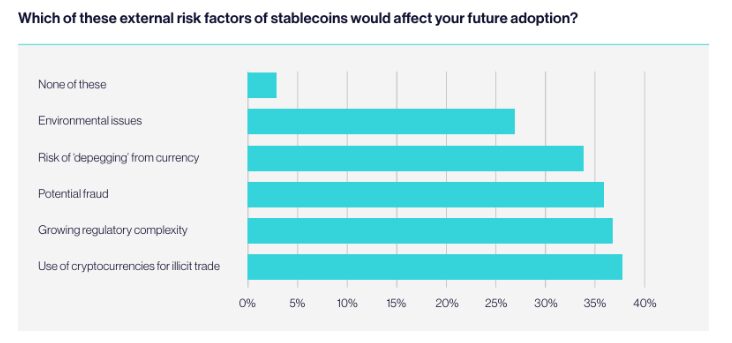Lovable, an AI-powered coding platform based in Stockholm, is approaching 8 million users, CEO Anton Osika revealed in a Monday interview, a significant leap from the 2.3 million active users reported in July. Osika mentioned that the company—which was established nearly a year ago—is now seeing “100,000 new products created on Lovable each day.”
These figures point to the startup’s swift expansion. Lovable has secured $228 million in funding so far, including a $200 million investment this summer that set its valuation at $1.8 billion. Lately, there has been speculation—possibly fueled by current investors—that new supporters are interested in investing at a $5 billion valuation. However, Osika stated that the company is not short on capital and declined to comment on any future fundraising.
During a conversation onstage at the Web Summit in Lisbon, Osika notably withheld one key figure: Lovable’s current annual recurring revenue. The company, which offers both free and paid plans, reached $100 million in ARR this June and made the achievement public. Still, there are ongoing questions about whether the current surge in vibe coding is sustainable.
Barclays research from this summer, along with Google Trends, indicated that traffic to some of the most talked-about platforms—including Lovable and Vercel’s v0—has dropped since peaking earlier in the year. (Barclays analysts reported Lovable’s traffic was down 40% as of September.) “This drop in traffic raises the question of whether the app/site vibecoding trend has already peaked or if it’s just experiencing a temporary slowdown before renewed growth,” they wrote in a note to investors.
Nevertheless, Osika maintained that user retention is robust, pointing to net dollar retention above 100%—meaning users are spending more over time. He also shared that the company recently surpassed 100 employees and is now bringing in leadership talent from San Francisco to strengthen its Stockholm headquarters.
Lovable originated from GPT Engineer, an open-source tool Osika created that quickly gained popularity among developers. However, he soon realized the greater potential was with the vast majority of people who can’t code. “A few days after building GPT Engineer, I realized we could completely rethink how software is made,” Osika recalled. “I biked over to my co-founder’s place, woke him up, and shared my idea.”
The platform now boasts a diverse community of users. Osika said that over half of Fortune 500 companies are using Lovable to “boost creativity.” At the same time, an 11-year-old in Lisbon built a Facebook-like site for his school, and a pair from Sweden are earning $700,000 a year from a startup they launched on Lovable just seven months ago.
“The feedback I get from new users is, ‘It just works,’” Osika said, attributing this to what he calls Swedish design sensibility.
Security continues to be a complex challenge for the vibe coding industry. When I brought up a recent case where an app built with vibe coding tools exposed 72,000 images, including GPS data and user IDs, Osika acknowledged the issue.
“The fastest-growing part of our engineering team is security,” he explained, adding that his aim is to make building with Lovable “even safer than relying solely on human-written code.” He noted that Lovable now performs multiple security checks before deployment, though users working on sensitive projects—such as banking applications—are still required to bring in security professionals, just as they would with traditional development.
When asked about competition from OpenAI and Anthropic—the AI leaders whose models power Lovable but who have also launched their own coding agents—Osika was similarly direct. He believes the market is large enough for several successful players. “If we can enable more people to be creative and take initiative... and help anyone with good ideas build businesses, that’s something to celebrate, no matter who achieves it.”
It’s a notably collaborative perspective in a field not known for such attitudes. (Even Osika has had some playful exchanges on social media with Amjad Masad of rival Replit.) Still, he said his main priority is creating “the most user-friendly experience possible” rather than focusing on competitors.
Osika described Lovable’s vision as creating “the final piece of software”—a platform where everything a product team needs, from understanding users to rolling out essential features, can be managed through a straightforward interface.
He said the phrase “Demo, don’t memo,” popular among product leaders, sums up how companies now use Lovable. Employees can quickly turn ideas into prototypes instead of drafting lengthy documents, then test them with early users before investing further resources.
Despite the rapid growth and investor buzz, Osika—dressed in a simple beige T-shirt and matching shirt, with tousled hair—seemed relaxed. The former particle physicist in his thirties, who was Sauna Labs’ first employee before starting Lovable, has quickly transitioned from open-source developer to venture-backed founder and sought-after conference speaker. Yet he appeared more interested in discussing European work culture than focusing on his company’s rise or the sudden attention he’s receiving.
“What matters to me is that everyone at the company is driven by our mission, genuinely cares about their work, and is committed to our collective success,” he said, pushing back against Silicon Valley’s relentless work culture. “The best people on my team today, most of them have families, and they’re deeply invested in what we’re doing. They’re not working 12-hour days, six days a week.”
He added, “Of course, it’s a startup, so they’re probably working more than most jobs.”
